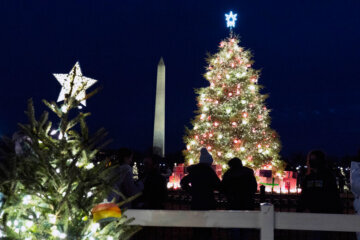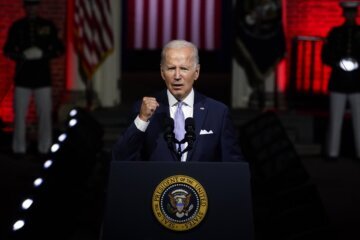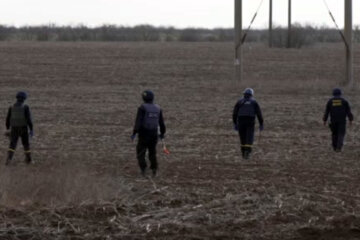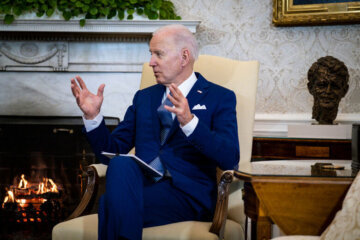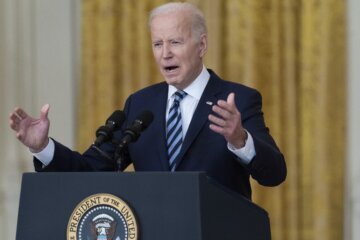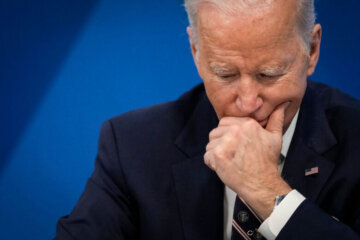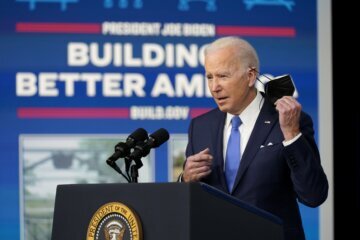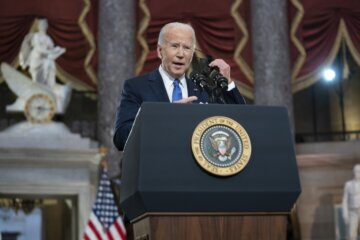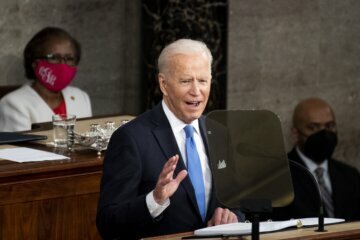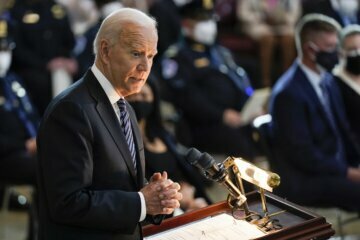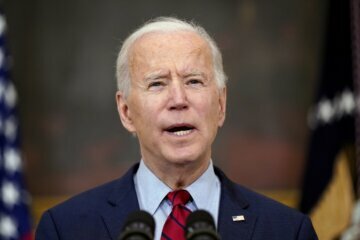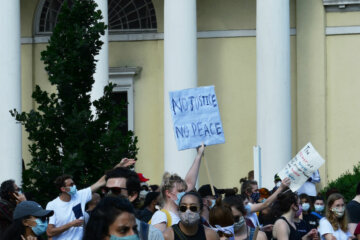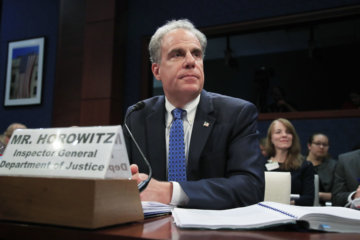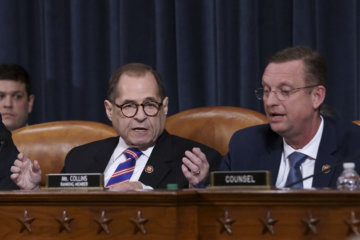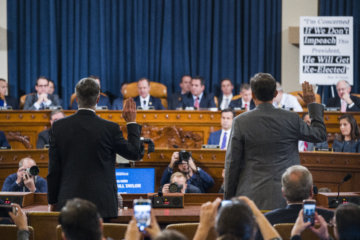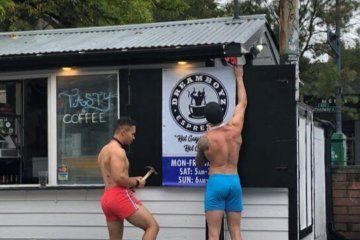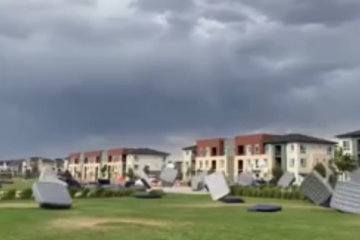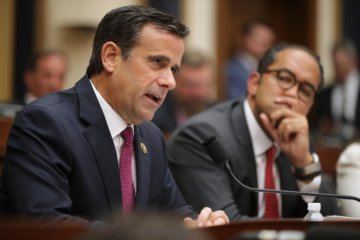Airbnb bets on virtual travel experiences
As coronavirus spreads across the globe, many are scouring the news for hints of what’s to come. From his home base in New York City’s East Village, however, Turkish-American Uluç Ülgen offers another way to peer into the future.
Ülgen, the host of The Turkish Coffee Therapy, is a devotee of the ancient Turkish tradition of reading the future in coffee grounds.
“When you reach the bottom of the cup of coffee, you flip the cup over,” says Ülgen. “When you flip it back up there are all these ornate symbols, figures and images that you read to see the person’s future outlook.”
Normally, guests visit Ülgen in New York. Now, he’s taking the guided coffee-preparation and fortune-reading sessions virtual, one of a suite of Online Experiences that Airbnb unveiled today.
Virtual versions of the Airbnb Experiences pairing travelers with local hosts, Online Experiences feature hosts from more than 30 countries and range in price from $1 to $40. Hosts offering the virtual sessions have the chance to recoup some income lost to coronavirus; for customers, the experiences are an opportunity to connect with unfamiliar cultures.
“Human connection is at the core of what we do,” wrote Head of Airbnb Experiences Catherine Powell in a press release. “With so many people needing to stay indoors to protect their health, we want to provide an opportunity for our hosts to connect with our global community of guests in the only way possible right now, online.”
Some are offered by hosts with name recognition; customers can sign up for a virtual bike tour led by Olympian triathlete Alistair Brownlee, or take a K-Beauty tutorial from a Seoul-based professional broadcaster.
Others are all about cultural immersion, whether you’re meditating with a Japanese monk, taking a home-style Moroccan cooking class or learning techniques of Irish dance.
Airbnb’s coronavirus chaos
The rollout of the virtual experiences comes following a month of disruptions for Airbnb, which has whipsawed between frustrated customers and outraged hosts.
As the Covid-19 crisis unfolded, some travelers who cancelled trips due to concerns of infection found they couldn’t get full refunds for their bookings. Initially, Airbnb only extended its Extenuating Circumstances Policy to China, South Korea and some parts of Italy.
“In order for me to get a full refund, they said that the actual state of Texas has to file a state of emergency,” said Tommy Mariani on March 8th. When the Austin-based festival SXSW was called off due to coronavirus, Mariani was left with an Airbnb bill for more than $1,000.
Reacting to customer complaints, the company vastly expanded its coronavirus response on March 13, allowing more travelers to qualify for penalty-free bookings.
Next, it was Airbnb’s hosts who complained, upset that the company had upended cancellation policies, costing them vital income.
“Extending refunds to practically everyone through April 1, will be absolutely devastating to hosts,” wrote the short-term vacation rental group purchasing organization Host GPO in an open letter to the company. (The coronavirus cancellation policy has since been extended through the end of May.)
In an effort to appease and support angry hosts, on March 30th Airbnb unveiled a $250 million Host Relief Fund, plus a $10 million Superhost Relief Fund offering grants of up to $5,000 for qualifying hosts.
Airbnb is getting help, too. On Monday, the company announced a $1 billion investment from the private equity firm Silver Lake and the investment firm Sixth Street Partners.
These deals, which include an additional $5 million earmark for the Superhost Relief Fund, come at a time when some hosts are noticing the limitations of the aid package.
The $250 million Host Relief Fund will partially refund hosts for some cancellations, but the money only covers a fraction of their losses. Since refunds are limited to 25 percent of what hosts would have received from a normal cancellation, even those with a strict cancellation policy would recoup just 12.5 percent of the total booking.
And the Superhost Relief Fund comes with limitations, too.
Hosts cannot apply for the grants directly. Instead, selected hosts will be invited to apply. The qualifications specify that hosts must demonstrate that Airbnb is a vital source of their income, and that they have lost “a significant percentage of their earnings due to COVID-19.” (Some hosts have wondered on Twitter how Airbnb will identify hosts for invitations without access to details of their income.)
Do travelers really want to go virtual?
Airbnb isn’t the only travel company taking on-the-ground experiences into the virtual world. The new Online Experiences join a slew of virtual travel experiences available from destinations devastated by the drop in tourism due to Covid-19.
Now, instead of a trip to the Caribbean, travelers can tune into virtual tours of Saint Lucia via Instagram.
The Cincinnati Zoo and Botanical Garden offers daily Facebook Live sessions with zookeepers and the animals; in a partnership with the Google Cultural Institute, the British Museum has an online portal for exploring exhibits.
They’re an effort to reach would-be travelers grounded by the coronavirus. But it remains to be seen whether virtual travel gains traction, especially at a moment when online meetings and remote working are contributing to an overwhelming amount of screen time for many.
But Ülgen, the New York-based Airbnb host, hopes that virtual connections will have lasting benefits. “These readings are meant to be an expression of positivity, encouragement and hope,” he says.
“At a time when people are so desperate to make connections,” says Ülgen, “the online experience is really, really valuable.”
The-CNN-Wire
™ & © 2020 Cable News Network, Inc., a WarnerMedia Company. All rights reserved.
More Videos
 View Video
View Video
February 24th, 2026, 11:59 PM EST
WATCH: President Trump delivers 2026 State of the Union address
 View Video
View Video
February 13th, 2026, 02:35 PM EST
WATCH: Judge sentences au pair for her role in Fairfax County double murder
 View Video
View Video
January 17th, 2026, 08:08 AM EST
WATCH LIVE: Spanberger becomes Virginia’s 1st woman governor during historic inauguration
 View Video
View Video
November 25th, 2025, 12:14 PM EST
WATCH: Trump pardons turkeys Gobble and Waddle in annual Thanksgiving tradition
 View Video
View Video
November 20th, 2025, 10:35 AM EST
WATCH: Former Vice President Dick Cheney’s funeral service at Washington National Cathedral
 View Video
View Video
November 12th, 2025, 03:09 PM EST
WATCH: Funeral services for conservationist Jane Goodall held in DC
 View Video
View Video
November 4th, 2025, 10:18 PM EST
WATCH: Victory, concession as Virginia votes in general election
 View Video
View Video
October 16th, 2025, 02:36 PM EDT
WATCH: Virginia attorney general candidates debate with text scandal front and center
 View Video
View Video
September 18th, 2025, 06:14 PM EDT
WTOP Answers: Is the federal law enforcement surge decreasing crime in DC?
 View Video
View Video
September 11th, 2025, 08:30 AM EDT
WATCH: Trump, military officials mark 24th anniversary of 9/11 attacks at the Pentagon
 View Video
View Video
September 3rd, 2025, 01:40 PM EDT
WATCH: ICE raids create anxiety for teachers, parents, students in DC schools
 View Video
View Video
September 2nd, 2025, 12:22 PM EDT
Game over? Zelky’s North arcade temporarily closes on Rehoboth boardwalk
 View Video
View Video
August 4th, 2025, 10:35 AM EDT
WATCH: Panda Bao Li celebrates his 4th birthday at DC’s National Zoo
 View Video
View Video
July 29th, 2025, 06:01 PM EDT
WATCH: Candidates for Gerry Connolly’s congressional seat face off in forum
 View Video
View Video
July 3rd, 2025, 01:17 PM EDT
WATCH: Patriotic performances, dazzling fireworks mark America’s 249th birthday
 View Video
View Video
May 6th, 2025, 04:31 PM EDT
WATCH: How AI is helping meteorologists with storm predictions
 View Video
View Video
April 14th, 2025, 05:24 PM EDT
WATCH: Trophy falls apart as VP Vance tries to lift it during Ohio State’s White House visit
 View Video
View Video
January 20th, 2025, 04:03 PM EST
WATCH: Speakers at Capital One’s indoor ‘parade’ mark Trump inauguration
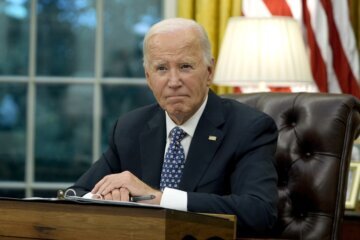 View Video
View Video
January 16th, 2025, 04:44 AM EST
WATCH: President Biden delivers farewell address from Oval Office
 View Video
View Video
January 7th, 2025, 04:08 PM EST
WATCH: Jimmy Carter’s remains lie in state at the Capitol ahead of state funeral
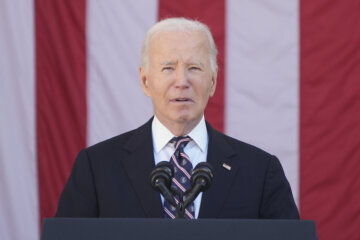 View Video
View Video
November 11th, 2024, 11:13 AM EST
WATCH: President Biden attends Veterans Day ceremony at Arlington National Cemetery
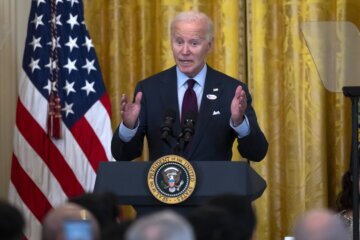 View Video
View Video
November 7th, 2024, 10:38 AM EST
WATCH: President Biden addresses nation after 2024 Election
 View Video
View Video
October 10th, 2024, 04:55 PM EDT
WATCH: Hogan, Alsobrooks face off in only debate ahead of Maryland Senate vote
 View Video
View Video
October 2nd, 2024, 06:48 AM EDT
WATCH: JD Vance, Tim Walz meet for one-and-only vice presidential debate
 View Video
View Video
July 24th, 2024, 01:06 PM EDT
WATCH: Israeli Prime Minister Benjamin Netanyahu delivers speech to Congress
 View Video
View Video
July 23rd, 2024, 04:28 AM EDT
How Old Town Alexandria is preserving its original DC border
 View Video
View Video
July 13th, 2024, 11:13 PM EDT
WATCH: Shots fired during Pa. rally as Secret Service escorts injured Trump off stage
 View Video
View Video
July 11th, 2024, 05:54 AM EDT
Matt About Town: Unearthing hidden fossils from millions of years ago at a popular DC monument
 View Video
View Video
June 11th, 2024, 06:15 AM EDT
Matt About Town: DC’s newest pop-up mixes nostalgia and mini golf
 View Video
View Video
May 30th, 2024, 05:59 PM EDT
WATCH: Trump, Bragg react after guilty verdict in hush money trial
 View Video
View Video
May 9th, 2024, 01:23 PM EDT
People on the National Mall celebrate their mom by sharing her best advice
 View Video
View Video
May 9th, 2024, 05:38 AM EDT
Matt About Town: Loudoun Co. comic store hosts free comic book giveaway on Star Wars Day
 View Video
View Video
March 14th, 2024, 05:01 AM EDT
Matt About Town: Dive into the conspiracy behind the disappearance of an obscure DC monument
 View Video
View Video
February 8th, 2024, 05:22 AM EST
Ice Ice Baby: This obscure Alexandria monument celebrates all things frozen
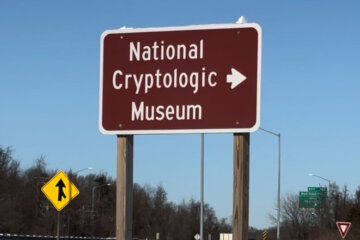 View Video
View Video
January 30th, 2024, 12:50 PM EST
Embrace your inner codebreaker at Maryland’s National Cryptologic Museum
 View Video
View Video
January 15th, 2024, 02:04 PM EST
WATCH: California woman finds large black bear in crawl space
 View Video
View Video
December 14th, 2023, 07:45 AM EST
WATCH: There’s a ‘wine revolution’ happening in the DC area— and it’s not where you might expect
 View Video
View Video
December 5th, 2023, 07:37 AM EST
WATCH: Acorns are surprisingly edible. New exhibit at GW champions the ‘humble little nut’
 View Video
View Video
November 28th, 2023, 04:58 AM EST
WATCH: No pandas? No problem. DC’s National Zoo shines brighter than ever this season
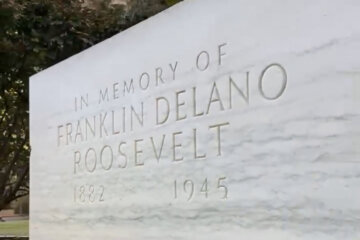 View Video
View Video
November 21st, 2023, 04:54 AM EST
Explore DC’s FDR memorial … not the one you’re thinking of!
 View Video
View Video
November 16th, 2023, 05:39 AM EST
Dessert for breakfast! Have you had the award-winning gelato at DC’s National Gallery of Art?
 View Video
View Video
November 7th, 2023, 04:05 AM EST
WATCH: National Building Museum’s new ‘Mini Memories’ exhibit offers pocket-size fun for the whole family
 View Video
View Video
November 2nd, 2023, 05:01 AM EDT
WATCH: Down, but never out: Last Montgomery Co. duckpin bowling lanes thrive after reopening in White Oak
 View Video
View Video
October 26th, 2023, 04:53 AM EDT
WATCH: Md. cyclist looks to be first Black woman to compete for Team USA at 2028 Olympics
 View Video
View Video
October 24th, 2023, 04:39 AM EDT
Out of town feel in the heart of DC: Hillwood Estate offers unique glimpse into the past of high society
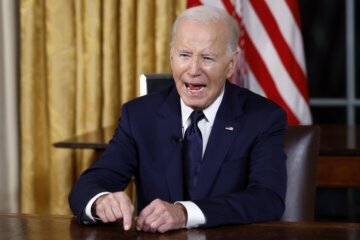 View Video
View Video
October 20th, 2023, 05:10 AM EDT
WATCH: President Biden delivers Oval Office address on Israel, Ukraine
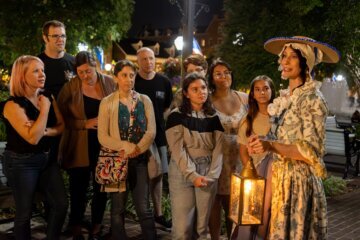 View Video
View Video
October 19th, 2023, 07:39 AM EDT
WATCH: Old Town Alexandria Colonial Ghost Tours offer spooky fun for all ages
 View Video
View Video
August 30th, 2023, 11:49 AM EDT
WATCH LIVE: Hurricane Idalia steamed through the US after making landfall
 View Video
View Video
July 27th, 2023, 10:34 AM EDT
Crowds watch Chincoteague wild ponies complete 98th annual swim in Virginia
 View Video
View Video
June 15th, 2023, 01:21 PM EDT
WATCH: See the progress of the I-95 rebuild in Philadelphia
 View Video
View Video
April 4th, 2023, 07:24 PM EDT
WATCH: Trump delivers remarks at Mar-a-Lago after New York hearing
 View Video
View Video
March 29th, 2023, 07:19 PM EDT
DC Sports Huddle: Reason to care about the 2023 Nationals and how a new Commanders owner impacts Lamar Jackson
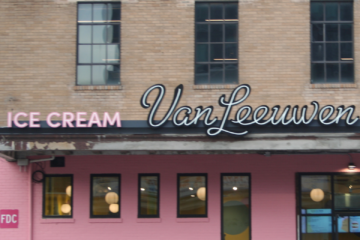 View Video
View Video
March 23rd, 2023, 05:55 AM EDT
Van Leeuwen ice cream shop opens in Union Market with $1 scoops
 View Video
View Video
March 14th, 2023, 05:51 PM EDT
DC Sports Huddle: Breaking down the NCAA basketball brackets and Commanders free agency
 View Video
View Video
March 8th, 2023, 05:56 PM EST
DC Sports Huddle: The curious case of Lamar Jackson and what to expect from Terps’ tournament run
 View Video
View Video
March 1st, 2023, 06:27 PM EST
DC Sports Huddle: Choosing the Commanders’ new veteran QB within our jam-packed, beautiful disaster
 View Video
View Video
February 23rd, 2023, 05:56 PM EST
DC Sports Huddle: What Eric Bieniemy’s offense will mean for the Commanders
 View Video
View Video
February 16th, 2023, 05:34 PM EST
DC Sports Huddle: The Commanders’ ongoing OC search and Strasburg’s future with the Nats
 View Video
View Video
February 8th, 2023, 05:47 PM EST
DC Sports Huddle: Super Bowl LVII preview and the LeBron-Jordan GOAT debate
 View Video
View Video
February 8th, 2023, 04:45 AM EST
VIDEO: Biden’s 2023 State of the Union address, Republican response
 View Video
View Video
January 31st, 2023, 05:36 PM EST
DC Sports Huddle: Ranking Washington’s 1982 and 1987 Super Bowl teams on their milestone anniversaries
 View Video
View Video
January 25th, 2023, 05:47 PM EST
DC Sports Huddle: Hoyas win, Wizards confound and the Commanders’ QB question — Brady or Rodgers?
 View Video
View Video
January 18th, 2023, 06:09 PM EST
DC Sports Huddle: Who is the Commanders’ best OC option?
 View Video
View Video
January 10th, 2023, 05:46 PM EST
DC Sports Huddle: The truth about the 2022 Commanders how it will impact 2023
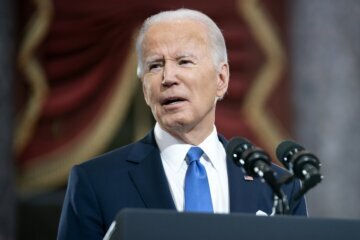 View Video
View Video
January 6th, 2023, 01:44 PM EST
WATCH: Biden marks second anniversary of Jan. 6 Capitol riot
 View Video
View Video
January 5th, 2023, 05:26 PM EST
DC Sports Huddle: Assessing the Howell factor and whether Rivera is right for the Commanders
 View Video
View Video
January 3rd, 2023, 08:12 AM EST
President Teddy Roosevelt’s teenage relative takes office in DC
 View Video
View Video
December 29th, 2022, 05:06 PM EST
DC Sports Huddle: How the Commanders’ QB change alters the rest of the 2022 season
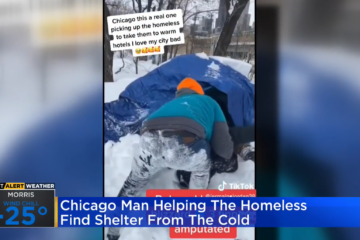 View Video
View Video
December 26th, 2022, 10:23 AM EST
WATCH: Chicago man helps people experiencing homelessness during deadly cold
 View Video
View Video
December 22nd, 2022, 10:24 AM EST
DC Sports Huddle: How the Commanders can pull off another season-saving upset in San Francisco
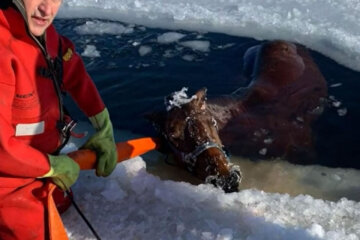 View Video
View Video
December 20th, 2022, 08:06 AM EST
WATCH: Horse rescued after falling through thin ice over frozen lake
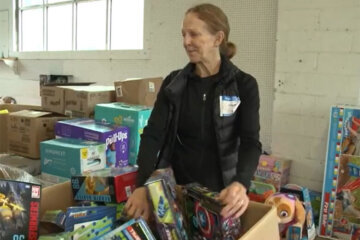 View Video
View Video
December 8th, 2022, 07:33 AM EST
VIDEO: Walmart donation from Chesapeake store to help some at Christmas
 View Video
View Video
December 7th, 2022, 06:10 PM EST
DC Sports Huddle: Commanders at the bye — and the last time they ruled DC sports
 View Video
View Video
December 6th, 2022, 09:35 AM EST
WATCH: Officers receive Congressional Gold Medals for Jan. 6
 View Video
View Video
December 2nd, 2022, 12:03 PM EST
DC Sports Huddle: How Washington can take command of the NFC
 View Video
View Video
November 22nd, 2022, 04:57 PM EST
DC Sports Huddle: Thanksgiving, the Commanders’ playoff push and a new ownership option
 View Video
View Video
November 15th, 2022, 11:02 PM EST
DC Sports Huddle: Ranking Commanders’ upset win and whether it keeps Heinicke at QB
 View Video
View Video
November 9th, 2022, 07:21 PM EST
DC Sports Huddle: Assessing the Commanders at midseason — can Washington stun Philly on MNF?
 View Video
View Video
November 3rd, 2022, 06:00 PM EDT
DC Sports Huddle: The truth about a Snyder sale and the Commanders’ crucial stretch
 View Video
View Video
November 2nd, 2022, 06:49 PM EDT
WATCH: Biden warns of threats to democracy from election deniers
 View Video
View Video
October 27th, 2022, 05:39 PM EDT
DC Sports Huddle: Have we seen the last of Carson Wentz as Commanders QB?
 View Video
View Video
October 25th, 2022, 09:26 AM EDT
WATCH: Imported fire ants reported in Southeastern Virginia
 View Video
View Video
October 25th, 2022, 09:24 AM EDT
WATCH: Towson baseball player with diabetes lands NIL deal
 View Video
View Video
October 20th, 2022, 07:41 PM EDT
DC Sports Huddle: Making sense of the Commanders’ QB conundrum and Snyder’s ownership strife
 View Video
View Video
October 14th, 2022, 05:16 PM EDT
DC Sports Huddle: Commanders win amid tumultuous day — here’s what it means for Washington
 View Video
View Video
October 6th, 2022, 06:10 PM EDT
DC Sports Huddle: The harsh reality of the Washington Commanders
 View Video
View Video
September 29th, 2022, 05:42 PM EDT
DC Sports Huddle: The Commanders’ reckoning in ‘Big D’ and Wizards’ mission in Japan
 View Video
View Video
September 22nd, 2022, 05:59 PM EDT
DC Sports Huddle: Can the Commanders defense be fixed in time?
 View Video
View Video
September 22nd, 2022, 11:22 AM EDT
Dozens indicted in COVID-19 nutrition program fraud scheme
 View Video
View Video
September 15th, 2022, 04:58 PM EDT
DC Sports Huddle: Are the Commanders better as underdogs?
 View Video
View Video
September 8th, 2022, 04:48 PM EDT
DC Sports Huddle: Washington Commanders 2022 season preview, predictions
 View Video
View Video
August 31st, 2022, 04:51 PM EDT
DC Sports Huddle: Commanders’ cut to 53 and the big move that could make them contenders
 View Video
View Video
August 25th, 2022, 05:23 PM EDT
DC Sports Huddle: Does the Ravens’ preseason win streak matter? And what if Washington ends it?
 View Video
View Video
August 18th, 2022, 04:08 PM EDT
DC Sports Huddle: The Commanders’ KC measuring stick and Mystics playoff preview
 View Video
View Video
August 17th, 2022, 08:28 PM EDT
WATCH: Survivor of lightning strike near White House shares story
 View Video
View Video
August 17th, 2022, 10:21 AM EDT
WTOP’s Old Bay-flavored snacks taste test: Which treat will win?
 View Video
View Video
August 11th, 2022, 04:50 PM EDT
DC Sports Huddle: Has the Commanders’ culture really changed?
 View Video
View Video
August 3rd, 2022, 05:19 PM EDT
DC Sports Huddle: Is Soto trade Washington’s ‘Curse of the Childish Bambino’?
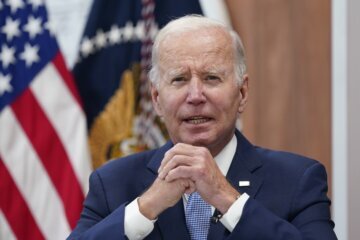 View Video
View Video
August 1st, 2022, 06:37 PM EDT
WATCH: Biden speaks after US strike kills top al-Qaida leader Ayman al-Zawahri
 View Video
View Video
July 27th, 2022, 05:39 PM EDT
DC Sports Huddle: Top storylines out of Commanders training camp
 View Video
View Video
July 20th, 2022, 04:20 PM EDT
DC Sports Huddle: Will the Nationals really trade Juan Soto?
 View Video
View Video
July 18th, 2022, 08:48 AM EDT
Tasting the rainbow may be toxic: Lawsuit filed over Skittles’ use of chemical
 View Video
View Video
July 6th, 2022, 03:45 PM EDT
DC Sports Huddle: What to expect from Terry McLaurin now that he’s paid
 View Video
View Video
June 30th, 2022, 11:44 AM EDT
WATCH: Ketanji Brown Jackson sworn in as Supreme Court justice
 View Video
View Video
June 29th, 2022, 04:23 PM EDT
DC Sports Huddle: Which deal was bigger — Commanders re-signing McLaurin or Wizards trade?
 View Video
View Video
June 25th, 2022, 06:20 PM EDT
Take a walk through DC history on the 112th birthday of Meridian Hill Park
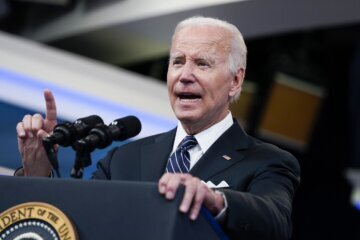 View Video
View Video
June 24th, 2022, 11:59 PM EDT
WATCH: Biden delivers remarks following Supreme Court abortion ruling
 View Video
View Video
June 22nd, 2022, 06:18 PM EDT
DC Sports Huddle: 2022 NBA draft preview — the Wizards’ best and worst picks
 View Video
View Video
June 17th, 2022, 01:00 AM EDT
WATCH: Third Jan. 6 hearing turns to pressure on Pence to reject election
 View Video
View Video
June 15th, 2022, 04:48 PM EDT
DC Sports Huddle: Who more deserves big money — Terry McLaurin or Lamar Jackson?
 View Video
View Video
June 8th, 2022, 05:45 PM EDT
DC Sports Huddle: Did Jack Del Rio just cause a schism in the Commanders locker room?
 View Video
View Video
June 1st, 2022, 06:13 PM EDT
DC Sports Huddle: Chase’s return to Commanders camp and NBA Finals preview
 View Video
View Video
June 1st, 2022, 02:44 PM EDT
Watch Live: Jury reaches verdict in Depp-Heard defamation trial
 View Video
View Video
May 13th, 2022, 12:05 AM EDT
DC Sports Huddle: Analyzing Washington Commanders’ schedule, Caps’ playoff hopes
 View Video
View Video
May 2nd, 2022, 02:33 PM EDT
DC Sports Huddle: Grading the Commanders’ draft and Capitals playoff preview
 View Video
View Video
April 27th, 2022, 05:16 PM EDT
DC Sports Huddle: Whom should the Commanders take in the NFL Draft?
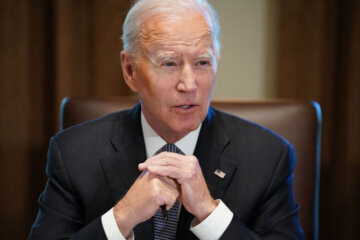 View Video
View Video
April 21st, 2022, 08:40 AM EDT
WATCH: Biden announces new military assistance for Ukraine
 View Video
View Video
April 20th, 2022, 06:04 PM EDT
DC Sports Huddle: Commanders’ NFL draft strategy and best celebrity DC owners
 View Video
View Video
April 13th, 2022, 05:23 PM EDT
DC Sports Huddle: How to get the Wizards back to NBA contention
 View Video
View Video
April 6th, 2022, 05:23 PM EDT
DC Sports Huddle: What to expect from the 2022 Washington Nationals
 View Video
View Video
April 5th, 2022, 06:22 PM EDT
WATCH: Fairfax Co. woman disappeared after ‘goodbye dinner’ with ex-boyfriend
 View Video
View Video
March 24th, 2022, 08:28 AM EDT
WATCH: Day 4 of confirmation hearing for Supreme Court nominee Jackson
 View Video
View Video
March 24th, 2022, 01:45 AM EDT
WATCH: Day 3 of confirmation hearing for Supreme Court nominee Jackson
 View Video
View Video
March 23rd, 2022, 03:42 PM EDT
DC Sports Huddle: Maryland’s move for Willard, NFL’s QB carousel
 View Video
View Video
March 22nd, 2022, 09:30 PM EDT
WATCH: Day 2 of confirmation hearing for Supreme Court nominee Jackson
 View Video
View Video
March 9th, 2022, 04:12 PM EST
DC Sports Huddle: Is Carson Wentz the right QB for the Commanders?
 View Video
View Video
March 2nd, 2022, 05:27 PM EST
DC Sports Huddle: Part I of the Commanders QB question — is the answer in the NFL draft?
 View Video
View Video
February 23rd, 2022, 06:16 PM EST
DC Sports Huddle: Handshakes, tanking and the Commanders’ new mascot
 View Video
View Video
February 16th, 2022, 05:10 PM EST
DC Sports Huddle: Remembering the Ryan Zimmerman era in Washington
 View Video
View Video
February 9th, 2022, 06:32 PM EST
DC Sports Huddle: How Super Bowl LVI ties into Commanders’ rebuild
 View Video
View Video
February 9th, 2022, 04:12 AM EST
Memorial service for 2 officers killed in Bridgewater College shooting
 View Video
View Video
February 3rd, 2022, 10:13 AM EST
WATCH: House oversight roundtable on Washington football’s toxic workplace culture
 View Video
View Video
February 2nd, 2022, 06:43 PM EST
DC Sports Huddle: How does Washington Commanders sit with you?
 View Video
View Video
February 2nd, 2022, 07:52 AM EST
WATCH: It’s Groundhog Day 2022 — will Phil see his shadow?
 View Video
View Video
January 26th, 2022, 05:29 PM EST
DC Sports Huddle: Ranking Washington’s 1991 Super Bowl team
 View Video
View Video
January 19th, 2022, 07:09 PM EST
DC Sports Huddle: Washington’s blueprint lies in the NFL playoffs
 View Video
View Video
January 12th, 2022, 04:02 PM EST
DC Sports Huddle: Who should be Washington’s next starting QB?
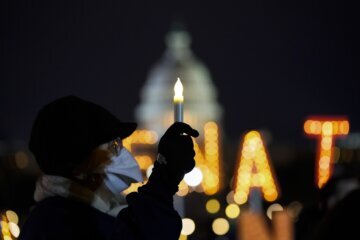 View Video
View Video
January 6th, 2022, 04:57 PM EST
WATCH: Prayer vigil on Capitol steps commemorates Jan. 6 attack
 View Video
View Video
January 5th, 2022, 06:40 PM EST
DC Sports Huddle: Washington’s name game and moral of its 2021 season
 View Video
View Video
December 22nd, 2021, 02:54 PM EST
WATCH: White House COVID-19 response team provides situational update
 View Video
View Video
December 22nd, 2021, 02:40 PM EST
DC Sports Huddle: Does Washington have a Christmas miracle in Dallas?
 View Video
View Video
December 15th, 2021, 06:52 PM EST
DC Sports Huddle: Can Washington overcome COVID, Eagles in Philadelphia?
 View Video
View Video
December 15th, 2021, 05:52 PM EST
WATCH: Washington National Cathedral honors 800,000 Americans who died of COVID-19
 View Video
View Video
December 9th, 2021, 06:50 AM EST
WATCH: Santa arrives in Los Angeles by police helicopter
 View Video
View Video
December 8th, 2021, 05:55 PM EST
DC Sports Huddle: Can Washington beat Dallas and steal back the NFC East?
 View Video
View Video
December 3rd, 2021, 07:51 AM EST
WTOP’s Beer of the Week: Bluejacket/Finback For the Time Being DIPA
 View Video
View Video
December 1st, 2021, 06:16 PM EST
DC Sports Huddle: The reality of the Washington Football Team’s win streak
 View Video
View Video
November 24th, 2021, 06:23 PM EST
DC Sports Huddle: Can Washington make another NFL playoff push?
 View Video
View Video
November 17th, 2021, 06:59 PM EST
DC Sports Huddle: Can the Washington Football Team contain Cam Newton?
 View Video
View Video
November 10th, 2021, 06:39 PM EST
DC Sports Huddle: What to expect from Washington Football Team’s second half
 View Video
View Video
November 3rd, 2021, 06:45 PM EDT
DC Sports Huddle: The state of the Washington Football Team at midseason
 View Video
View Video
October 27th, 2021, 08:22 PM EDT
DC Sports Huddle: Will Washington buy or sell at the NFL trade deadline?
 View Video
View Video
October 13th, 2021, 05:44 PM EDT
DC Sports Huddle: Caps preview and can Washington keep up with the Chiefs?
 View Video
View Video
October 6th, 2021, 05:06 PM EDT
DC Sports Huddle: Should Washington have drafted Justin Herbert?
 View Video
View Video
September 29th, 2021, 02:31 PM EDT
DC Sports Huddle: Why Washington’s defense needs Atlanta
 View Video
View Video
September 22nd, 2021, 05:44 PM EDT
DC Sports Huddle: Can Taylor Heinicke lead Washington to victory in Buffalo?
 View Video
View Video
September 21st, 2021, 05:24 PM EDT
WATCH: DC couple shares first, last kiss at Dave Thomas Circle Wendy’s before restaurant closes
 View Video
View Video
September 15th, 2021, 04:50 PM EDT
DC Sports Huddle: Washington vs. Giants preview, WFT QB conundrum
 View Video
View Video
September 13th, 2021, 10:48 AM EDT
VIDEO: WTOP tests out Helbiz’s DC historical tour on scooter
 View Video
View Video
September 8th, 2021, 04:20 PM EDT
DC Sports Huddle: What will the Washington Football Team be in 2021?
 View Video
View Video
September 7th, 2021, 09:30 PM EDT
Seeing stripes: Dazzle of zebras spotted in Prince George’s Co.
 View Video
View Video
September 1st, 2021, 02:12 PM EDT
DC Sports Huddle: Washington Football Team roster breakdown, college football preview
 View Video
View Video
August 24th, 2021, 02:15 PM EDT
DC Sports Huddle: Cause for concern over Washington Football Team offense?
 View Video
View Video
August 17th, 2021, 12:33 PM EDT
DC Sports Huddle: Washington Football Team’s preseason progress report
 View Video
View Video
August 10th, 2021, 02:40 PM EDT
DC Sports Huddle: Washington Football Team ‘preseason superstars’
 View Video
View Video
August 3rd, 2021, 02:01 PM EDT
The WTOP Huddle: Will COVID unravel the Washington Football Team?
 View Video
View Video
July 27th, 2021, 03:06 PM EDT
The WTOP Huddle: Washington Football Team Training Camp Preview
 View Video
View Video
July 20th, 2021, 01:08 PM EDT
The WTOP Huddle: Is Wes Unseld Jr. an inspired Wizards hire?
 View Video
View Video
July 13th, 2021, 01:14 PM EDT
The WTOP Huddle: What should be the new name for the Washington Football Team?
 View Video
View Video
July 6th, 2021, 01:56 PM EDT
The WTOP Huddle: NBA Finals preview, Scherzer’s All-Star snub
 View Video
View Video
June 29th, 2021, 02:27 PM EDT
The WTOP Huddle: How far can Tiafoe, Kudla go at Wimbledon?
 View Video
View Video
June 25th, 2021, 06:52 PM EDT
WATCH: Arlington man waiting for word on missing family members after Miami condo collapse
 View Video
View Video
June 25th, 2021, 08:13 AM EDT
Japan’s Olympics superfans who want Tokyo 2020 to go ahead despite COVID-19
 View Video
View Video
June 25th, 2021, 08:02 AM EDT
His wife died by suicide after a 13-month battle with long-haul Covid. He hopes help is on the way for others
 View Video
View Video
June 25th, 2021, 07:46 AM EDT
Weddings are making a huge comeback and couples are ‘panic booking’
 View Video
View Video
June 8th, 2021, 02:03 PM EDT
The WTOP Huddle: Who should be elected to a DC sports super team?
 View Video
View Video
May 25th, 2021, 03:16 PM EDT
The WTOP Huddle: How do the Wizards win in Philly? Time for Caps rebuild?
 View Video
View Video
May 11th, 2021, 02:00 PM EDT
The WTOP Huddle: Russell Westbrook’s legacy, impact on the Wizards
 View Video
View Video
May 5th, 2021, 08:38 AM EDT
WATCH LIVE: Facebook Oversight Board announces Trump decision
 View Video
View Video
May 5th, 2021, 06:35 AM EDT
DC police release more bodycam footage in shooting of Terrance Parker
 View Video
View Video
May 4th, 2021, 02:21 PM EDT
The WTOP Huddle: Wizards are contenders, Washington’s NFL draft grades
 View Video
View Video
April 27th, 2021, 03:29 PM EDT
The WTOP Huddle: Who Washington should pick in the NFL draft; inside Caps’, Wizards’ playoff pushes
 View Video
View Video
April 21st, 2021, 09:31 AM EDT
Apple unveils a new iPad Pro, colorful iMacs, AirTag and more
 View Video
View Video
April 20th, 2021, 02:36 PM EDT
The WTOP Huddle: The Wizards look playoff-ready and Alex Smith’s legacy
 View Video
View Video
April 14th, 2021, 09:39 AM EDT
WATCH: Trial of Derek Chauvin, charged with George Floyd’s murder
 View Video
View Video
April 13th, 2021, 02:36 PM EDT
The WTOP Huddle: Nats back on track; Caps, Wizards make playoff pushes
 View Video
View Video
March 23rd, 2021, 03:41 PM EDT
The WTOP Huddle: Maryland March Madness and remembering Elgin Baylor
 View Video
View Video
March 16th, 2021, 02:36 PM EDT
The WTOP Huddle: FitzMagic hits Washington, Hoyas become March Madness stars
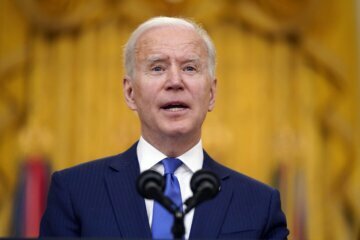 View Video
View Video
March 11th, 2021, 09:05 PM EST
WATCH: President Biden addresses nation on anniversary of COVID-19 in US
 View Video
View Video
March 9th, 2021, 02:08 PM EST
The WTOP Huddle: Scherff’s franchise tag, Washington’s next QB and March Madness
 View Video
View Video
March 4th, 2021, 08:09 AM EST
WATCH LIVE: Outside Capitol amid possible plot to breach Congress
 View Video
View Video
March 3rd, 2021, 09:31 AM EST
WATCH LIVE: National security officials testify before Joint Senate hearing on Capitol riot
 View Video
View Video
March 2nd, 2021, 09:10 AM EST
WATCH: FBI Director Chris Wray testifies in Congress on Capitol riot
 View Video
View Video
February 25th, 2021, 09:45 AM EST
WATCH LIVE: Acting Capitol Police chief testifying about Capitol riot
 View Video
View Video
February 23rd, 2021, 02:38 PM EST
The WTOP Huddle: Wizards keep winning and a new Nats lineup?
 View Video
View Video
February 22nd, 2021, 03:19 PM EST
This 29-year-old cancer survivor is set to be the youngest American ever in space
 View Video
View Video
February 16th, 2021, 03:09 PM EST
The WTOP Huddle: Wall’s return to Washington and Nats Spring Training
 View Video
View Video
February 10th, 2021, 07:45 PM EST
WATCH: Opening arguments in Donald Trump’s impeachment trial
 View Video
View Video
February 3rd, 2021, 07:38 AM EST
WATCH: Members of Congress pay their respects to fallen Capitol Police officer
 View Video
View Video
February 2nd, 2021, 09:25 PM EST
WATCH: Capitol Police officer Brian Sicknick lies in honor at Capitol Rotunda
 View Video
View Video
February 2nd, 2021, 03:14 PM EST
The WTOP Huddle: Super Bowl LV and which QB can get Washington back to one?
 View Video
View Video
January 26th, 2021, 03:13 PM EST
The WTOP Huddle: COVID’s current impact on sports, Stafford a QB option for Washington?
 View Video
View Video
January 21st, 2021, 08:31 AM EST
WATCH LIVE: Presidential Inaugural Prayer Service at National Cathedral
 View Video
View Video
January 20th, 2021, 11:00 PM EST
Joe Biden’s Inauguration Day concludes with extravagant firework show
 View Video
View Video
January 19th, 2021, 03:47 PM EST
The WTOP Huddle: Hurney returns to Washington Football Team, will Watson be next?
 View Video
View Video
January 12th, 2021, 02:58 PM EST
The WTOP Huddle: What’s next for the Washington Football Team?
 View Video
View Video
January 12th, 2021, 08:51 AM EST
WATCH LIVE: House vote expected on 25th Amendment resolution
 View Video
View Video
December 29th, 2020, 09:29 PM EST
WTOP Huddle: Washington Football Team parts ways with Dwayne Haskins
 View Video
View Video
December 22nd, 2020, 08:56 PM EST
WTOP Huddle: How will Washington Football Team respond against Carolina?
 View Video
View Video
December 18th, 2020, 09:17 AM EST
Here’s why some McDonald’s restaurants are putting cameras in their dumpsters
 View Video
View Video
December 18th, 2020, 03:51 AM EST
‘We should be less afraid to be afraid,’ says Emily Harrington after historic El Capitan climb
 View Video
View Video
December 17th, 2020, 07:27 AM EST
Here are some of the amazing things that happened on Zoom this year
 View Video
View Video
December 16th, 2020, 02:07 AM EST
The WTOP Huddle: Washington Football Team now sits atop NFC East standings
 View Video
View Video
December 14th, 2020, 07:29 PM EST
WATCH: President-elect Joe Biden on Electoral College confirmation
 View Video
View Video
December 8th, 2020, 02:18 PM EST
The WTOP Huddle: Was Washington’s win in Pittsburgh a ‘culture-setting’ victory?
 View Video
View Video
December 4th, 2020, 04:53 PM EST
Look out world! DC’s giant panda cub Xiao Qi Ji is on the move
 View Video
View Video
December 1st, 2020, 04:52 PM EST
WTOP Huddle: After a statement win, where does the Washington Football Team stand?
 View Video
View Video
December 1st, 2020, 04:32 PM EST
Instagram influencer Alexis Sharkey was found dead near a Houston interstate, police say
 View Video
View Video
December 1st, 2020, 06:43 AM EST
Super Nintendo World is opening at Universal Studios Japan in February. Here’s a sneak peek
 View Video
View Video
November 17th, 2020, 08:17 PM EST
WTOP Huddle: Is Alex Smith starting a good thing for the Washington Football Team?
 View Video
View Video
November 16th, 2020, 07:18 PM EST
Astronauts really just took Baby Yoda with them up to space
 View Video
View Video
November 10th, 2020, 09:21 PM EST
WTOP Huddle: Where does the Washington Football Team go from here?
 View Video
View Video
November 6th, 2020, 11:19 AM EST
How to cope with stress eating through the 2020 election
 View Video
View Video
November 2nd, 2020, 10:46 AM EST
Kendall Jenner slammed for Halloween 25th birthday celebration
 View Video
View Video
October 28th, 2020, 08:52 AM EDT
Bugatti unveils a super light hypercar that can top 300 miles an hour
 View Video
View Video
October 25th, 2020, 07:59 AM EDT
Dad’s Zoom Halloween costume for his daughter is scary good
 View Video
View Video
October 22nd, 2020, 10:52 PM EDT
WATCH: Final presidential debate between Trump and Biden
 View Video
View Video
October 20th, 2020, 08:13 PM EDT
WTOP Huddle: Should Allen remain starting QB? A look ahead to Sunday’s game against Dallas
 View Video
View Video
October 16th, 2020, 11:31 PM EDT
Sshh! He can hear you: National Zoo’s baby giant panda turns 8 weeks old
 View Video
View Video
October 14th, 2020, 08:31 AM EDT
WATCH: Day 3 of hearings for Supreme Court nominee Barrett
 View Video
View Video
October 13th, 2020, 09:11 PM EDT
WTOP Huddle: Is the Washington Football Team trying to win now?
 View Video
View Video
October 12th, 2020, 07:27 AM EDT
WATCH: Confirmation hearings for Supreme Court nominee Amy Coney Barrett
 View Video
View Video
October 7th, 2020, 10:19 PM EDT
WTOP Huddle: Washington benches QB Haskins, switches to Allen vs. Rams
 View Video
View Video
September 29th, 2020, 11:13 PM EDT
WTOP Huddle: What happened to Burgundy and Gold in week 3 and what about playing the Ravens this weekend?
 View Video
View Video
September 25th, 2020, 03:36 PM EDT
Ginsburg’s longtime personal trainer honors the late justice with pushups
 View Video
View Video
September 24th, 2020, 08:59 AM EDT
Meghan makes surprise ‘America’s Got Talent’ appearance
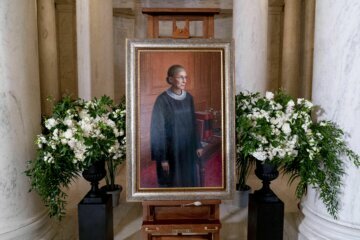 View Video
View Video
September 24th, 2020, 08:12 AM EDT
WATCH: Ruth Bader Ginsburg lies in repose at Supreme Court
 View Video
View Video
September 24th, 2020, 02:09 AM EDT
Fauci cautions that a COVID-19 vaccine won’t eliminate the need for masks and public health measures
 View Video
View Video
September 23rd, 2020, 12:16 PM EDT
WTOP Huddle: What happened to Burgundy and Gold in week 2?
 View Video
View Video
September 17th, 2020, 02:14 PM EDT
WTOP Huddle: WTOP Sports team looks back at NFL’s first week
 View Video
View Video
August 25th, 2020, 11:12 AM EDT
Inside China’s new lab conducting late-stage vaccine trials
 View Video
View Video
August 21st, 2020, 08:19 AM EDT
WATCH: Postmaster General Louis DeJoy testifies before Senate
 View Video
View Video
August 14th, 2020, 11:22 AM EDT
RZA came up with a new ice cream truck jingle because the old one was used in minstrel shows
 View Video
View Video
August 14th, 2020, 05:38 AM EDT
How 11-year-old Gui Khury made skateboarding history with first 1080 on a vertical ramp
 View Video
View Video
August 12th, 2020, 01:40 PM EDT
WATCH: Joe Biden introduces Kamala Harris as running mate
 View Video
View Video
July 31st, 2020, 03:10 PM EDT
Nike’s viral ‘You Can’t Stop Us’ ad is winning big on social media
 View Video
View Video
July 31st, 2020, 02:01 PM EDT
Human sperm roll like ‘playful otters’ as they swim, study finds, contradicting centuries-old beliefs
 View Video
View Video
July 31st, 2020, 01:00 PM EDT
Health officials testify before House panel on national pandemic plan
 View Video
View Video
July 28th, 2020, 03:57 PM EDT
WATCH: Civil rights icon John Lewis lies in state on Capitol steps
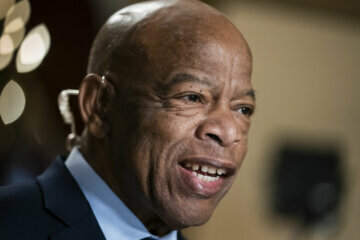 View Video
View Video
July 27th, 2020, 10:30 PM EDT
WATCH: Civil rights icon John Lewis lies in state at US Capitol
 View Video
View Video
July 26th, 2020, 10:50 AM EDT
WATCH LIVE: John Lewis crosses Selma’s Edmund Pettus Bridge for final time
 View Video
View Video
July 25th, 2020, 06:45 PM EDT
Watch: Selma honors congressman, civil rights icon John Lewis
 View Video
View Video
July 20th, 2020, 11:21 AM EDT
Gap shares fall after Kanye West threatens to walk away from Yeezy deal
 View Video
View Video
July 20th, 2020, 08:44 AM EDT
Police in Italy find shipment of coffee beans stuffed with cocaine
 View Video
View Video
July 19th, 2020, 08:47 PM EDT
Online petition calls on Trader Joe’s to change its ‘racist packaging’
 View Video
View Video
June 26th, 2020, 09:34 AM EDT
MGM National Harbor shows off changes ahead of Monday reopening
 View Video
View Video
June 11th, 2020, 04:08 AM EDT
How the ‘Juventus Way’ helped young Montgomery Co. soccer players during pandemic
 View Video
View Video
June 10th, 2020, 02:57 PM EDT
Medical supply company threw out products after Trump toured its facility
 View Video
View Video
June 10th, 2020, 01:34 PM EDT
Here’s what’s getting more expensive — and cheaper — at the grocery store
 View Video
View Video
June 9th, 2020, 12:56 AM EDT
NASCAR’s Bubba Wallace will have Black Lives Matter paint scheme on car at Martinsville Speedway race
 View Video
View Video
June 6th, 2020, 02:04 PM EDT
WATCH: Thousands gather on sweltering day in DC for 9th day of protests
 View Video
View Video
June 2nd, 2020, 11:22 AM EDT
WATCH: Trump to visit DC’s Saint John Paul II National Shrine
 View Video
View Video
May 29th, 2020, 11:01 AM EDT
LIVE VIDEO: Minnesota governor holds briefing following Minneapolis protests
 View Video
View Video
May 20th, 2020, 01:51 PM EDT
VIDEO: WTOP anchor finds 100+ used gloves, masks littered around Northwest DC
 View Video
View Video
May 19th, 2020, 01:15 PM EDT
Mnuchin, Powell testify to Senate panel about small-business lending effort
 View Video
View Video
May 12th, 2020, 07:32 AM EDT
WATCH: Dr. Fauci, health officials testify before Senate committee on reopening US
 View Video
View Video
May 5th, 2020, 02:24 PM EDT
A Dollar Tree worker told a man he needed a mask, so he wiped his face on her shirt, police say
 View Video
View Video
May 5th, 2020, 01:22 AM EDT
A 5-year-old boy was pulled over in Utah on his way to California to try to buy a Lamborghini
 View Video
View Video
May 4th, 2020, 10:14 PM EDT
Park ranger was telling a crowd to social distance. Mid-speech, someone pushed him into a lake
 View Video
View Video
May 1st, 2020, 02:09 PM EDT
Maryland sixth grader who helped create 1,000 masks gets Caps surprise
 View Video
View Video
April 29th, 2020, 09:52 AM EDT
Stephen Colbert and Jake Gyllenhaal bonded over sourdough starter
 View Video
View Video
April 28th, 2020, 10:34 PM EDT
Quarterback Alex Smith’s grueling road to recovery chronicled in ESPN program
 View Video
View Video
April 28th, 2020, 11:56 AM EDT
A reporter went on air wearing a suit coat and no pants, not realizing everyone could see his legs
 View Video
View Video
April 27th, 2020, 06:01 AM EDT
MASN Sports’ Melewski on the passing of legendary pitcher Steve Dalkowski
 View Video
View Video
April 15th, 2020, 03:49 PM EDT
With no tourists around, animals at Yosemite are ‘having a party’
 View Video
View Video
April 15th, 2020, 03:48 PM EDT
When the ventilator comes off, the delirium comes out for many coronavirus survivors
 View Video
View Video
April 14th, 2020, 01:07 PM EDT
Respiratory therapist with coronavirus gives birth to a daughter while in a medically induced coma
 View Video
View Video
April 14th, 2020, 10:13 AM EDT
Swizz Beatz and Timbaland want to keep us entertained and in the light amid coronavirus
 View Video
View Video
April 13th, 2020, 05:49 PM EDT
Brad Pitt’s HGTV debut on ‘Celebrity IOU’ is the feel-good TV we all need
 View Video
View Video
April 12th, 2020, 10:32 AM EDT
WATCH LIVE: National Cathedral holds virtual Easter Sunday services
 View Video
View Video
April 10th, 2020, 05:13 AM EDT
Climbing the height of Mount Everest from the comfort of your own home
 View Video
View Video
April 9th, 2020, 09:36 AM EDT
Joseph Gordon-Levitt wants to hear your coronavirus stories
 View Video
View Video
April 3rd, 2020, 03:26 PM EDT
People living in vans and RVs are getting squeezed during pandemic
 View Video
View Video
March 30th, 2020, 09:58 AM EDT
John Krasinski and Steve Carell gave us a mini ‘The Office’ reunion
 View Video
View Video
March 24th, 2020, 01:54 AM EDT
What these 34-year-old and 26-year-old coronavirus patients have to say to young adults
 View Video
View Video
March 23rd, 2020, 09:31 PM EDT
Care home nurse tells of terrifying and sudden ways coronavirus struck her patients
 View Video
View Video
March 23rd, 2020, 07:38 PM EDT
A man ran the length of a marathon all from his balcony during France’s coronavirus lockdown
 View Video
View Video
March 20th, 2020, 10:47 AM EDT
WATCH: White House daily coronavirus briefing for March 20
 View Video
View Video
March 19th, 2020, 10:27 AM EDT
WATCH: White House daily coronavirus briefing for March 19
 View Video
View Video
March 18th, 2020, 10:51 AM EDT
WATCH: White House daily coronavirus briefing for March 18
 View Video
View Video
March 17th, 2020, 12:45 PM EDT
Two siblings held a porch concert for a neighbor who is self-isolating
 View Video
View Video
March 17th, 2020, 10:39 AM EDT
WATCH LIVE: White House coronavirus task force gives update March 17
 View Video
View Video
March 17th, 2020, 12:43 AM EDT
This student created a network of ‘shopping angels’ to help the elderly get groceries during the coronavirus pandemic
 View Video
View Video
March 11th, 2020, 07:23 PM EDT
WATCH: Trump suspends travel between US and Europe for 30 days
 View Video
View Video
March 9th, 2020, 09:56 AM EDT
Highest sky deck in Western Hemisphere dares visitors to live on the edge
 View Video
View Video
March 9th, 2020, 08:35 AM EDT
For her 75th birthday, Dolly Parton wants to be on the cover of Playboy
 View Video
View Video
March 8th, 2020, 04:02 AM EDT
Lieutenant Dan the two-legged hound is competing to be the next Cadbury Bunny
 View Video
View Video
February 28th, 2020, 10:32 AM EST
VIDEO: Cops confiscate Batmobile replica during traffic stop
 View Video
View Video
February 26th, 2020, 05:21 PM EST
WATCH: Trump says US ‘very ready’ for virus; Pence to lead response
 View Video
View Video
February 25th, 2020, 06:24 PM EST
WATCH: USPS worker’s reunion with Howard County boy he found along I-95
 View Video
View Video
February 21st, 2020, 07:45 AM EST
WATCH: Nats celebrate World Series with parade ahead of Spring Training opener in Florida
 View Video
View Video
February 20th, 2020, 08:17 AM EST
Contigo recalls nearly 6 million of its kids water bottles due to a choking hazard. Again.
 View Video
View Video
February 20th, 2020, 06:51 AM EST
Julie Walters reveals she was diagnosed with bowel cancer
 View Video
View Video
February 19th, 2020, 09:03 PM EST
WATCH: Bloomberg, Sanders under attack at Democrats’ Nevada debate
 View Video
View Video
February 19th, 2020, 10:02 AM EST
Lark Voorhies ‘a bit slighted and hurt’ by ‘Saved by the Bell’ reunion snub
 View Video
View Video
February 14th, 2020, 03:30 PM EST
Prince William County man scratches $10M winning lottery ticket
 View Video
View Video
February 13th, 2020, 07:20 AM EST
A 2-year-old boy’s reaction to a Target ad is powerful reminder of why representation matters
 View Video
View Video
February 13th, 2020, 07:18 AM EST
A 6-year-old girl found a note at the grocery store with a surprise tucked inside
 View Video
View Video
February 12th, 2020, 11:22 AM EST
Worker on board Diamond Princess says crew are at greater risk of coronavirus
 View Video
View Video
February 12th, 2020, 10:35 AM EST
WATCH: LA Zoo welcomes first baby gorilla in over 20 years
 View Video
View Video
February 12th, 2020, 07:17 AM EST
He was 6 inches from being hit with a steel beam. A steering wheel saved him
 View Video
View Video
February 11th, 2020, 02:56 PM EST
Mysterious radio signal from space is repeating every 16 days
 View Video
View Video
February 11th, 2020, 11:53 AM EST
Dwyane Wade is proud to support his 12-year-old to live in her truth
 View Video
View Video
February 7th, 2020, 06:06 PM EST
VIDEO: All that political tension in DC? ‘Everyone’s hangry,’ AOC says
 View Video
View Video
February 5th, 2020, 11:05 AM EST
Watch: Camera captures dog starting fire in New Mexico house
 View Video
View Video
February 3rd, 2020, 05:00 PM EST
WATCH: Impeachment trial resumes with Senate poised to acquit
 View Video
View Video
February 2nd, 2020, 07:30 AM EST
WATCH: Punxsutawney Phil makes his forecast on Groundhog Day 2020
 View Video
View Video
January 29th, 2020, 12:19 PM EST
‘Mighty Ducks’ actor Shaun Weiss accused of breaking into man’s garage while high on meth
 View Video
View Video
January 29th, 2020, 07:41 AM EST
A 9-year-old boy who can deadlift more than twice his bodyweight is breaking powerlifting records
 View Video
View Video
January 26th, 2020, 05:35 PM EST
WATCH LIVE: LA County Sheriff’s Dept. briefing on Kobe Bryant helicopter crash
 View Video
View Video
January 25th, 2020, 09:36 AM EST
WATCH LIVE: Trump’s defense team makes case in impeachment trial
 View Video
View Video
January 19th, 2020, 03:18 PM EST
An abandoned husky with ‘weird’ eyes has been adopted after her photos went viral
 View Video
View Video
January 17th, 2020, 01:26 PM EST
Without warning, Eminem drops new album ‘Music to be Murdered by’
 View Video
View Video
January 16th, 2020, 12:25 PM EST
WATCH: Senators sworn in ahead of impeachment proceedings
 View Video
View Video
January 15th, 2020, 09:50 AM EST
WATCH: Pelosi names Schiff, Nadler as prosecutors for Trump trial
 View Video
View Video
January 10th, 2020, 10:09 AM EST
WATCH: ‘Jeopardy!’ greats go head to head in game show showdown
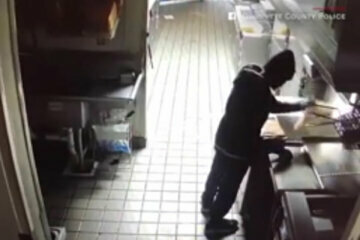 View Video
View Video
January 9th, 2020, 10:57 AM EST
WATCH: Burglar cooks food and takes nap in Georgia Taco Bell
 View Video
View Video
January 7th, 2020, 02:23 PM EST
Why Netflix is partnering with Goop and its controversies
 View Video
View Video
January 7th, 2020, 11:57 AM EST
Punta Ventana, one of Puerto Rico’s natural wonders, has been destroyed by an earthquake
 View Video
View Video
January 7th, 2020, 09:43 AM EST
Michelle Obama to highlight college students’ first year in new Instagram TV series
 View Video
View Video
January 7th, 2020, 01:37 AM EST
NASA astronaut shares beautiful image of 2020’s first meteor shower
 View Video
View Video
January 2nd, 2020, 02:49 PM EST
A family thought they were just baking a pizza. Then they found a snake inside their oven
 View Video
View Video
January 2nd, 2020, 11:39 AM EST
Ricki Lake reveals she’s been struggling with the ‘quiet hell’ of hair loss for 30 years
 View Video
View Video
January 1st, 2020, 04:40 PM EST
Bells ring at Washington National Cathedral in harmonious start of the new year
 View Video
View Video
January 1st, 2020, 06:41 AM EST
From plastic bags to natural hair, here are the new laws coming in 2020
 View Video
View Video
December 31st, 2019, 10:46 AM EST
Two puffins scratched their itches with sticks — the first evidence that seabirds can use tools
 View Video
View Video
December 31st, 2019, 10:15 AM EST
Michelle Williams and ‘Hamilton’ director Thomas Kail are engaged and expecting
 View Video
View Video
December 30th, 2019, 03:39 PM EST
A 12-year-old got a magnifying glass for Christmas — and set his lawn on fire
 View Video
View Video
December 30th, 2019, 12:11 PM EST
Trump and Obama tied for the most admired men in the US this year. Michelle is the most admired woman, Gallup reports
 View Video
View Video
December 24th, 2019, 10:32 AM EST
VIDEO: Washington Capitals show their Christmas spirit with Captain
 View Video
View Video
December 13th, 2019, 08:26 AM EST
WATCH: House Judiciary votes on articles of impeachment
 View Video
View Video
December 12th, 2019, 07:56 AM EST
WATCH AND LISTEN LIVE: House Judiciary draws up formal articles of impeachment
 View Video
View Video
December 11th, 2019, 05:35 PM EST
Michelle Obama helps give out iPads, $100K to Southeast DC school
 View Video
View Video
December 10th, 2019, 08:28 AM EST
WATCH: Democrats unveil impeachment articles against Trump
 View Video
View Video
December 5th, 2019, 08:33 AM EST
WATCH: Speaker Nancy Pelosi says House will draft articles of impeachment
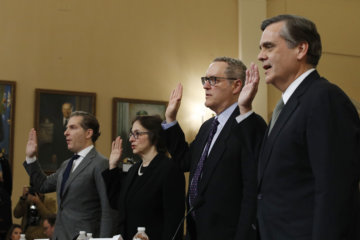 View Video
View Video
December 4th, 2019, 07:51 AM EST
WATCH: House Judiciary Committee’s 1st Trump impeachment hearing
 View Video
View Video
December 4th, 2019, 03:18 AM EST
A polar bear was spray-painted with graffiti. Experts fear it won’t survive
 View Video
View Video
December 2nd, 2019, 10:21 AM EST
Robert De Niro defends Anna Paquin’s role in ‘The Irishman’
 View Video
View Video
November 25th, 2019, 08:00 PM EST
No easy mark: Female bodybuilder, 82, clobbers intruder
 View Video
View Video
November 22nd, 2019, 03:15 PM EST
WATCH: A Boeing 777 lands safely back in Los Angeles after flames shoot from an engine
 View Video
View Video
November 22nd, 2019, 02:57 PM EST
WATCH: Remember when Fred Rogers swapped his sport coat for a knit cardigan?
 View Video
View Video
November 21st, 2019, 01:02 AM EST
Koala rescued from Australia bushfire is reunited with hero grandma
 View Video
View Video
November 20th, 2019, 08:15 PM EST
WATCH: Impeachment panel grills US ambassador to EU and Defense, State officials
 View Video
View Video
November 20th, 2019, 12:54 PM EST
More than 140 ancient geoglyphs were found carved in the sands of Peru
 View Video
View Video
November 19th, 2019, 08:17 PM EST
WATCH AND LISTEN: Day 3 of impeachment hearings wraps up after long day of testimonies
 View Video
View Video
November 19th, 2019, 10:11 AM EST
The ‘Dancing With the Stars’ semifinals left the audience and contestants in tears
 View Video
View Video
November 19th, 2019, 12:08 AM EST
A new Uno deck promises to keep families away from politics at Thanksgiving dinner
 View Video
View Video
November 18th, 2019, 02:17 PM EST
‘Jeopardy! The Greatest of All Time’ premiering in January
 View Video
View Video
November 17th, 2019, 06:55 PM EST
Taco Bell wants you to take its tacos, stick ’em in a blender, and serve them as bisque this Thanksgiving
 View Video
View Video
November 16th, 2019, 08:25 PM EST
Florida couple gives birth to boy thanks to ‘Win a Baby’ contest
 View Video
View Video
November 16th, 2019, 03:54 PM EST
Kanye West performed a surprise concert for inmates at Houston jail
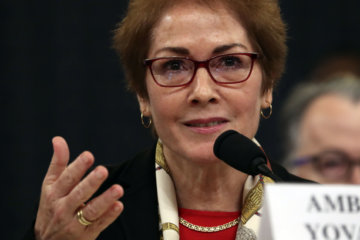 View Video
View Video
November 15th, 2019, 03:45 PM EST
VIDEO: House impeachment inquiry of President Trump continues
 View Video
View Video
November 13th, 2019, 12:17 PM EST
Minecraft Earth is available in the US for fans hoping to play the AR game early
 View Video
View Video
November 12th, 2019, 11:41 AM EST
We bought a $1 house in Italy. Here’s what happened next
 View Video
View Video
November 11th, 2019, 09:48 PM EST
Alex Trebek chokes up on ‘Jeopardy!’ after contestant’s heartfelt message
 View Video
View Video
November 11th, 2019, 04:03 PM EST
A World War II submarine that was missing for 75 years has been found off Okinawa, Japan
 View Video
View Video
November 11th, 2019, 01:14 PM EST
A judge held a law student’s baby so that the boy could be part of his mother’s swearing-in ceremony
 View Video
View Video
November 11th, 2019, 12:21 PM EST
Tiny deer-like animal thought lost to science photographed for first time in 30 years
 View Video
View Video
November 7th, 2019, 12:42 PM EST
The woman accused of entering the Bronx Zoo lion enclosure was arrested
 View Video
View Video
November 6th, 2019, 01:11 PM EST
A 25-year-old politician got heckled during a climate crisis speech. Her deadpan retort: ‘OK, boomer’
 View Video
View Video
November 6th, 2019, 08:01 AM EST
‘It didn’t have to end with a bowl’: Democrat beats GOP incumbent to win seat she lost in 2017 after tie-breaking pick
 View Video
View Video
November 6th, 2019, 04:30 AM EST
Our poor, unfortunate souls are grateful for Queen Latifah’s Ursula in ‘The Little Mermaid Live’
 View Video
View Video
November 5th, 2019, 11:56 PM EST
Cyclist who flipped off Trump motorcade wins local office in Virginia
 View Video
View Video
November 5th, 2019, 03:50 PM EST
Jimmy Kimmel shares parents’ pranks on kids’ Halloween joy
 View Video
View Video
November 4th, 2019, 10:08 PM EST
Krispy Kreme reverses course, allows student resale service
 View Video
View Video
October 31st, 2019, 09:20 PM EDT
WATCH: World Series champs Nats get hero’s welcome at Dulles International Airport
 View Video
View Video
October 29th, 2019, 02:23 PM EDT
Holy guacamole! Thousands of avocados spilled on Texas highway
 View Video
View Video
October 29th, 2019, 01:26 PM EDT
Halloween costumes wouldn’t fit his son’s wheelchair. Now he builds epic outfits himself
 View Video
View Video
October 29th, 2019, 09:13 AM EDT
Retired doctor, 67, gives birth in China after getting ‘pregnant naturally’
 View Video
View Video
October 28th, 2019, 12:46 PM EDT
Authorities identify victim of gender reveal party explosion
 View Video
View Video
October 28th, 2019, 07:30 AM EDT
Popeyes’ spicy chicken sandwich is officially coming back
 View Video
View Video
October 27th, 2019, 01:30 PM EDT
Man wins $200,000 lottery prize on the way to his last chemo treatment
 View Video
View Video
October 26th, 2019, 01:22 PM EDT
A fat cat named Cinderblock wins over the internet with its heartwarming workout routine
 View Video
View Video
October 24th, 2019, 09:14 AM EDT
WATCH: Rep. Elijah Cummings lies in state at Capitol ceremony
 View Video
View Video
October 23rd, 2019, 09:57 AM EDT
Kelly Clarkson’s new talk show is a hit. Here’s why that’s a big deal
 View Video
View Video
October 22nd, 2019, 09:31 AM EDT
Bob Dylan and Johnny Cash’s demo of ‘Wanted Man’ is released
 View Video
View Video
October 21st, 2019, 05:54 PM EDT
Researchers discover Japanese carrier from the World War II Battle of Midway
 View Video
View Video
October 21st, 2019, 06:40 AM EDT
A girls soccer team was penalized for their ‘equal pay’ shirts. Now their message is being celebrated
 View Video
View Video
October 18th, 2019, 11:37 AM EDT
WATCH: Woman falls onto subway tracks and is pulled to safety
 View Video
View Video
October 15th, 2019, 12:00 PM EDT
Here are all the movies and TV shows you can binge on when Disney+ launches
 View Video
View Video
October 15th, 2019, 08:15 AM EDT
Fortnite is back online with a new chapter after two-day hiatus
 View Video
View Video
October 14th, 2019, 09:15 PM EDT
A massive mastiff had to be rescued after getting exhausted on a mountain hike
 View Video
View Video
October 14th, 2019, 03:01 PM EDT
Panera defends its mac and cheese after a video exposed the menu item is, gasp, cooked in a bag
 View Video
View Video
October 14th, 2019, 12:16 PM EDT
Search resumes for worker missing in fatal New Orleans building collapse
 View Video
View Video
October 10th, 2019, 08:26 AM EDT
Ed Sheeran and Prince Harry unite in video for World Mental Health Day
 View Video
View Video
October 9th, 2019, 09:57 PM EDT
‘Riverdale’ bid farewell to Luke Perry in emotional episode
 View Video
View Video
October 9th, 2019, 11:28 AM EDT
Swiss climbs 1,800-foot vertical rock face in record time … without a safety rope
 View Video
View Video
October 9th, 2019, 09:52 AM EDT
Virgin Atlantic’s seat messaging system has been flagged by travelers for years
 View Video
View Video
October 8th, 2019, 06:38 PM EDT
What happened to this car is nuts. 200 walnuts, to be exact
 View Video
View Video
October 8th, 2019, 11:07 AM EDT
Eagles plan massive ‘Hotel California’ performances on tour
 View Video
View Video
October 8th, 2019, 06:35 AM EDT
Ellen DeGeneres explains hanging out with her friend George W. Bush
 View Video
View Video
October 7th, 2019, 02:38 PM EDT
This record-breaking pumpkin is heavier than a small car and big enough to fit inside
 View Video
View Video
October 7th, 2019, 10:20 AM EDT
Alex Trebek says his pancreatic cancer may mean the end of his time at ‘Jeopardy!’
 View Video
View Video
October 6th, 2019, 03:44 PM EDT
Paul McCartney and Mick Jagger among musicians paying tribute to Cream drummer Ginger Baker
 View Video
View Video
October 4th, 2019, 11:18 AM EDT
Post-surgery Taylor Swift nearly has meltdown over a banana
 View Video
View Video
October 4th, 2019, 11:13 AM EDT
WATCH: Here’s what it’s like to fly in an Uber helicopter
 View Video
View Video
October 3rd, 2019, 06:00 PM EDT
WATCH: Washington National Cathedral’s choristers give Nats a sweet serenade
 View Video
View Video
October 3rd, 2019, 10:50 AM EDT
A Texas cheerleader jumped off a homecoming float to save a choking boy
 View Video
View Video
October 3rd, 2019, 08:13 AM EDT
Is this hydrogen-powered vessel the superyacht of the future?
 View Video
View Video
October 2nd, 2019, 06:47 PM EDT
Mounted officer said ‘this is gonna look really bad’ before leading an arrested man down the street in Galveston
 View Video
View Video
October 2nd, 2019, 03:32 AM EDT
Indonesia cancels plan to ban tourists from Komodo Island
 View Video
View Video
October 1st, 2019, 05:14 PM EDT
The Bronx Zoo says a woman seen dancing inside its lion enclosure could have been seriously hurt or killed
 View Video
View Video
October 1st, 2019, 10:55 AM EDT
Taiwan bridge collapses, sending truck plunging onto fishing boats
 View Video
View Video
October 1st, 2019, 02:58 AM EDT
Catering cart causes chaos at Chicago airport, but American Airlines employee saves the day
 View Video
View Video
September 30th, 2019, 09:52 AM EDT
‘They need the cool factor’: Tony Hawk on skateboarding at Tokyo 2020
 View Video
View Video
September 29th, 2019, 07:23 PM EDT
Florida family mourns the loss of hero pit bull, who died protecting their children from a venomous snake
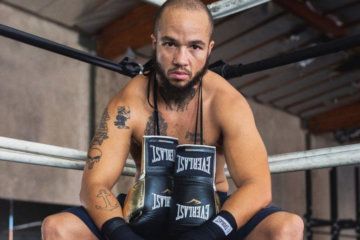 View Video
View Video
September 27th, 2019, 11:44 AM EDT
The world’s first transgender professional boxer is now the face of Everlast
 View Video
View Video
September 27th, 2019, 09:50 AM EDT
Prince Harry walks through Angola mine field, echoing Diana
 View Video
View Video
September 26th, 2019, 09:34 AM EDT
WATCH: Acting DNI Director Joseph Maguire testifies before Congress on whistleblower complaint
 View Video
View Video
September 26th, 2019, 05:21 AM EDT
Airline introduces baby seat map to allow passengers to avoid infants
 View Video
View Video
September 25th, 2019, 09:15 AM EDT
These sea otters adopt orphaned pups and raise them to be wild
 View Video
View Video
September 25th, 2019, 06:59 AM EDT
The world’s largest offshore wind farm is nearly complete. It can power 1 million homes
 View Video
View Video
September 25th, 2019, 06:19 AM EDT
Beijing’s Daxing International Airport now officially open
 View Video
View Video
September 24th, 2019, 11:22 AM EDT
A herd of spotted cows made a late-night visit to Spotted Cow brewery
 View Video
View Video
September 24th, 2019, 09:36 AM EDT
Will Smith and Jada Pinkett Smith staged an intervention with son Jaden
 View Video
View Video
September 23rd, 2019, 11:34 AM EDT
Greta Thunberg and 15 other children filed a complaint against five countries over the climate crisis
 View Video
View Video
September 23rd, 2019, 10:07 AM EDT
‘Oprah’s Book Club’ series is set to premiere on Apple TV+
 View Video
View Video
September 20th, 2019, 11:24 AM EDT
Are the iPhone 11 and iPhone 11 Pro worth the upgrade?
 View Video
View Video
September 19th, 2019, 11:21 AM EDT
A university studied the water quality on planes. You may want to skip the coffee on these two airlines
 View Video
View Video
September 18th, 2019, 11:09 AM EDT
VA puts regional director on leave after veteran found covered in ants at assisted-living facility
 View Video
View Video
September 18th, 2019, 10:44 AM EDT
Sandy Hook Promise’s chilling back-to-school PSA hopes to prevent mass shootings
 View Video
View Video
September 18th, 2019, 09:32 AM EDT
‘The Princess Bride’ remake idea has people crying inconceivable
 View Video
View Video
September 17th, 2019, 09:06 PM EDT
A fan held a sign on ‘College GameDay’ asking people to Venmo him money for beer. Now he’s donating it all to a children’s hospital
 View Video
View Video
September 17th, 2019, 10:43 AM EDT
Cancer survivor becomes first person to swim English Channel four times non-stop
 View Video
View Video
September 17th, 2019, 09:48 AM EDT
‘Jeopardy!’ host Trebek says he’s resumed chemotherapy
 View Video
View Video
September 16th, 2019, 11:44 AM EDT
Christie Brinkley drops out of ‘Dancing with the Stars’ due to injury, so her daughter is stepping in
 View Video
View Video
September 13th, 2019, 03:03 PM EDT
This photographer captures airplanes’ technicolor rainbow trails
 View Video
View Video
September 13th, 2019, 11:34 AM EDT
A baby born at 9:11 p.m. on 9/11 weighed 9 pounds, 11 ounces
 View Video
View Video
September 13th, 2019, 09:43 AM EDT
‘I always look orange’: Trump rails against energy-efficient light bulbs and Democratic environmental policies
 View Video
View Video
September 11th, 2019, 11:21 PM EDT
Report: Justify failed drug test before Triple Crown run
 View Video
View Video
September 11th, 2019, 07:13 PM EDT
WATCH: ‘Tribute in Light’ shines for 9/11 victims in New York City
 View Video
View Video
September 11th, 2019, 02:41 PM EDT
He spent his entire life pranking others. Now his family is sending him off with a comedic obituary
 View Video
View Video
September 11th, 2019, 10:59 AM EDT
VIDEO: Erectile dysfunction may predict strokes and heart attacks
 View Video
View Video
September 10th, 2019, 04:59 PM EDT
Asteroid as powerful as 10 billion WWII atomic bombs may have wiped out the dinosaurs
 View Video
View Video
September 10th, 2019, 03:55 PM EDT
WATCH: Visitors can soon see rare clouded leopard cubs at National Zoo
 View Video
View Video
September 10th, 2019, 03:24 PM EDT
These two toddlers are showing us what real-life besties look like
 View Video
View Video
September 9th, 2019, 05:29 PM EDT
Virtual reality is part of new tech used in GW’s operating rooms
 View Video
View Video
September 9th, 2019, 10:00 AM EDT
Trump slams John Legend for not helping with justice reform
 View Video
View Video
September 8th, 2019, 06:11 PM EDT
NASA remixed an Ariana Grande song to promote its mission to put a woman on the moon
 View Video
View Video
September 8th, 2019, 03:05 PM EDT
Robert Axelrod, the voice of Lord Zedd in ‘Mighty Morphin Power Rangers,’ dies at 70
 View Video
View Video
September 6th, 2019, 11:18 AM EDT
Owner of the Jeep abandoned in the surf on Myrtle Beach during Hurricane Dorian explains how it got there
 View Video
View Video
September 6th, 2019, 09:52 AM EDT
A man watched on doorbell camera as a tornado from Hurricane Dorian destroyed his home
 View Video
View Video
September 5th, 2019, 11:07 AM EDT
Friends with benefits: Can Facebook tackle your love life?
 View Video
View Video
September 4th, 2019, 12:35 PM EDT
Porsche’s first electric car can go from 0 to 60 mph in under 3 seconds
 View Video
View Video
September 4th, 2019, 02:44 AM EDT
US woman held in Philippines after airport staff find baby in her bag
 View Video
View Video
September 3rd, 2019, 09:14 PM EDT
World’s most livable city for 2019, according to the Economist Intelligence Unit
 View Video
View Video
September 3rd, 2019, 01:43 PM EDT
VIDEO: Ovechkin celebrates Ovi O’s impending launch, tosses himself some cereal
 View Video
View Video
September 2nd, 2019, 09:53 AM EDT
Electric vehicles will change how all cars look forever
 View Video
View Video
August 28th, 2019, 11:34 AM EDT
Trump thinks Fox News isn’t doing enough to promote his presidency
 View Video
View Video
August 27th, 2019, 03:24 PM EDT
Basketball-sized world-record grapefruit grown in Louisiana
 View Video
View Video
August 22nd, 2019, 01:19 PM EDT
Little League World Series essentials: Bats, balls … cardboard?!
 View Video
View Video
August 21st, 2019, 09:01 AM EDT
USWNT star Carli Lloyd drills a 55-yard field goal at a Philadelphia Eagles practice
 View Video
View Video
August 20th, 2019, 08:00 AM EDT
Samuel L. Jackson’s lightsaber and Jack Nicholson’s ‘The Shining’ axe on offer at movie prop auction
 View Video
View Video
August 19th, 2019, 07:32 AM EDT
A daredevil broke a 24-year cycling speed record, hitting 174 miles per hour
 View Video
View Video
August 14th, 2019, 10:38 AM EDT
Jury awards man $50 Million after he says officers beat him, locked him in closet
 View Video
View Video
August 14th, 2019, 09:10 AM EDT
A 12-year-old snags a mammoth discovery while on vacation in Ohio
 View Video
View Video
August 13th, 2019, 10:36 PM EDT
Jay-Z’s Roc Nation and NFL join forces for music and social justice
 View Video
View Video
August 13th, 2019, 11:31 AM EDT
The guy behind the ‘Storm Area 51’ Facebook event is hosting an alien-themed festival
 View Video
View Video
August 12th, 2019, 06:33 PM EDT
Missing dentures found stuck in throat 8 days after surgery
 View Video
View Video
August 12th, 2019, 11:16 AM EDT
NC woman took her 3 dogs to a pond to play. Within hours, dogs died from toxic algae
 View Video
View Video
August 12th, 2019, 07:41 AM EDT
Scaramucci no longer backs Trump’s reelection, says change may be needed at top of ticket
 View Video
View Video
August 9th, 2019, 10:21 AM EDT
Illinois man ‘adopts’ forgotten road barricade, celebrates birthdays and holidays with it
 View Video
View Video
August 7th, 2019, 11:18 AM EDT
Oscar-winning Mexican filmmaker Guillermo del Toro champions immigrants in Hollywood Walk of Fame speech
 View Video
View Video
August 7th, 2019, 09:53 AM EDT
Ariana Grande left sobbing over her live duet with Barbra Streisand
 View Video
View Video
August 7th, 2019, 09:04 AM EDT
World’s first launched water coaster, Cheetah Chase, coming in 2020
 View Video
View Video
August 7th, 2019, 07:22 AM EDT
Northern Virginia quartet Voices of Service advances in ‘America’s Got Talent’
 View Video
View Video
August 6th, 2019, 03:59 PM EDT
Tom Brady and Gisele Bündchen’s Boston-area mansion was just listed for a cool $39,500,000
 View Video
View Video
August 6th, 2019, 03:06 PM EDT
A woman shared a cruel note that was left in her mailbox. She never imagined the kindness that would come next
 View Video
View Video
August 5th, 2019, 12:41 PM EDT
Robert De Niro and chef Nobu Matsuhisa share their hospitality secrets
 View Video
View Video
August 5th, 2019, 04:27 AM EDT
Shooting victims include a mom who died protecting her baby
 View Video
View Video
August 5th, 2019, 03:45 AM EDT
Neil deGrasse Tyson is facing backlash after tweeting about shooting deaths
 View Video
View Video
August 2nd, 2019, 11:19 AM EDT
A gun store’s billboard targeting the freshmen congresswomen known as the ‘Squad’ is coming down
 View Video
View Video
August 2nd, 2019, 11:10 AM EDT
Pilot makes emergency landing on highway — all captured on trooper’s dashcam
 View Video
View Video
July 31st, 2019, 09:39 AM EDT
See a crowd catch a boy who fell from a sixth-floor balcony
 View Video
View Video
July 31st, 2019, 04:52 AM EDT
Mystery as surgical plate found in 15-foot crocodile’s stomach
 View Video
View Video
July 31st, 2019, 04:39 AM EDT
A glass bridge opening next month in China will be the world’s longest
 View Video
View Video
July 30th, 2019, 02:53 PM EDT
Trump on Baltimore: ‘They really appreciate what I’m doing’
 View Video
View Video
July 30th, 2019, 01:33 PM EDT
Your heartburn drugs may be giving you allergies, study suggests
 View Video
View Video
July 30th, 2019, 11:01 AM EDT
WATCH: Trump speaks at celebration of American democracy’s 400th birthday in Jamestown
 View Video
View Video
July 28th, 2019, 04:18 AM EDT
Stop sweating the great white shark. Here’s the one you should really be worried about
 View Video
View Video
July 26th, 2019, 09:41 AM EDT
Kar-go is Europe’s first road-worthy autonomous delivery vehicle
 View Video
View Video
July 25th, 2019, 07:51 AM EDT
See hoverboard daredevil attempt to cross the English Channel
 View Video
View Video
July 24th, 2019, 01:40 PM EDT
Police search for owners of flag found on Prince George’s Co. road
 View Video
View Video
July 23rd, 2019, 08:04 AM EDT
WATCH: FBI Director Christopher Wray testifies before Senate committee
 View Video
View Video
July 22nd, 2019, 10:15 AM EDT
Tom Hanks is absolutely perfect as Mister Rogers in new movie trailer
 View Video
View Video
July 19th, 2019, 07:20 PM EDT
Tom Cruise surprises Comic-Con with ‘Top Gun’ sequel trailer
 View Video
View Video
July 19th, 2019, 12:05 PM EDT
No one wants the middle seat on airplanes. This design could change that
 View Video
View Video
July 19th, 2019, 04:40 AM EDT
Tiger takes catnap on bed in Indian home after fleeing huge floods
 View Video
View Video
July 18th, 2019, 08:26 AM EDT
Kids with disabilities can now get special Halloween costumes at Target
 View Video
View Video
July 17th, 2019, 04:12 PM EDT
John Lewis on Trump in emotional speech: ‘I know racism when I feel it’
 View Video
View Video
July 17th, 2019, 01:07 PM EDT
WATCH: Hired weed-eating goats ‘gnaw-t’ bothered by Leesburg heat
 View Video
View Video
July 16th, 2019, 10:42 AM EDT
WATCH: Apollo 11 astronaut returns to launch pad 50 years later
 View Video
View Video
July 15th, 2019, 02:34 PM EDT
African American museum founder discovered dead in car trunk
 View Video
View Video
July 15th, 2019, 10:11 AM EDT
Giant jellyfish the size of a human spotted by divers off English coast
 View Video
View Video
July 12th, 2019, 10:51 AM EDT
Eleanor Holmes Norton’s fight for equal pay in 1970 still resonates today
 View Video
View Video
July 11th, 2019, 07:39 PM EDT
A sunken Soviet nuclear submarine is leaking unusually high levels of radiation
 View Video
View Video
July 11th, 2019, 11:28 AM EDT
Workers smelled gas before an explosion leveled a North Carolina KFC
 View Video
View Video
July 11th, 2019, 07:54 AM EDT
Denise Nickerson, Violet in ‘Willy Wonka & the Chocolate Factory,’ has died
 View Video
View Video
July 10th, 2019, 12:08 PM EDT

























